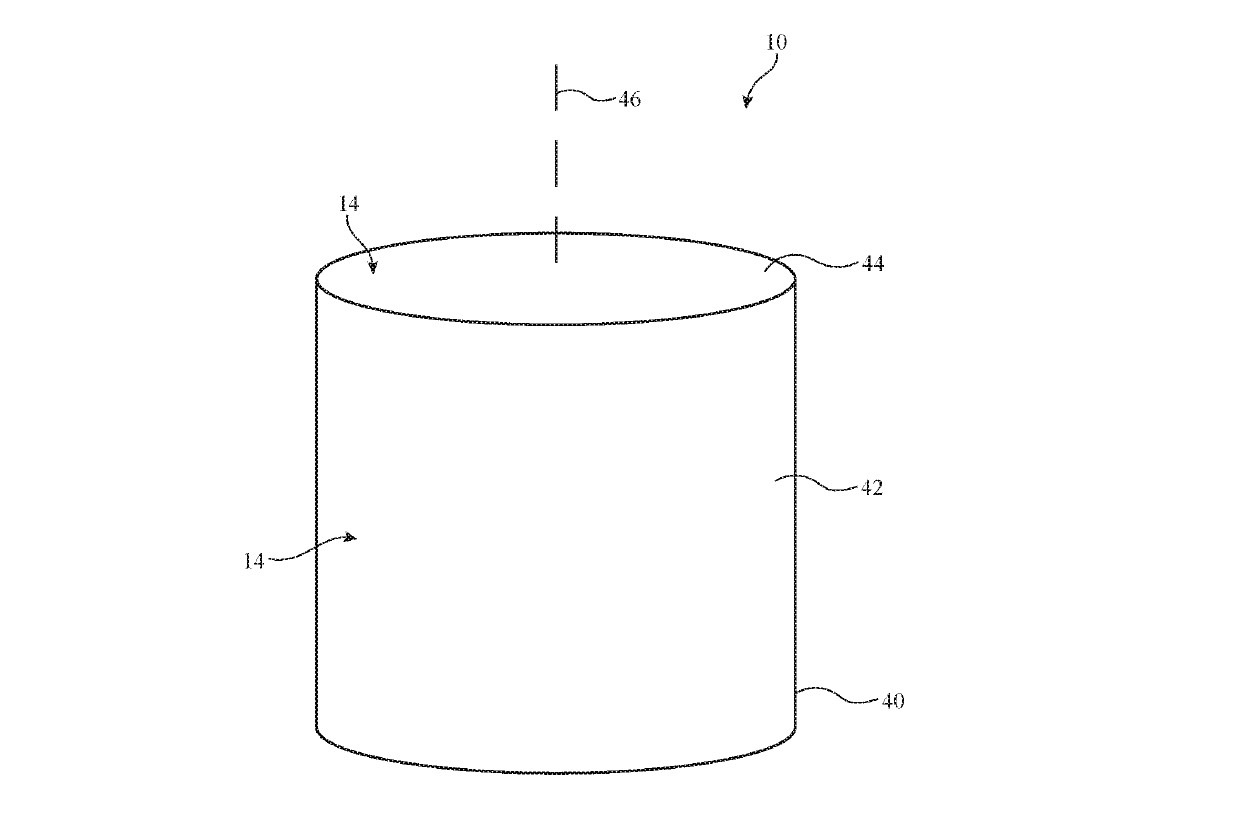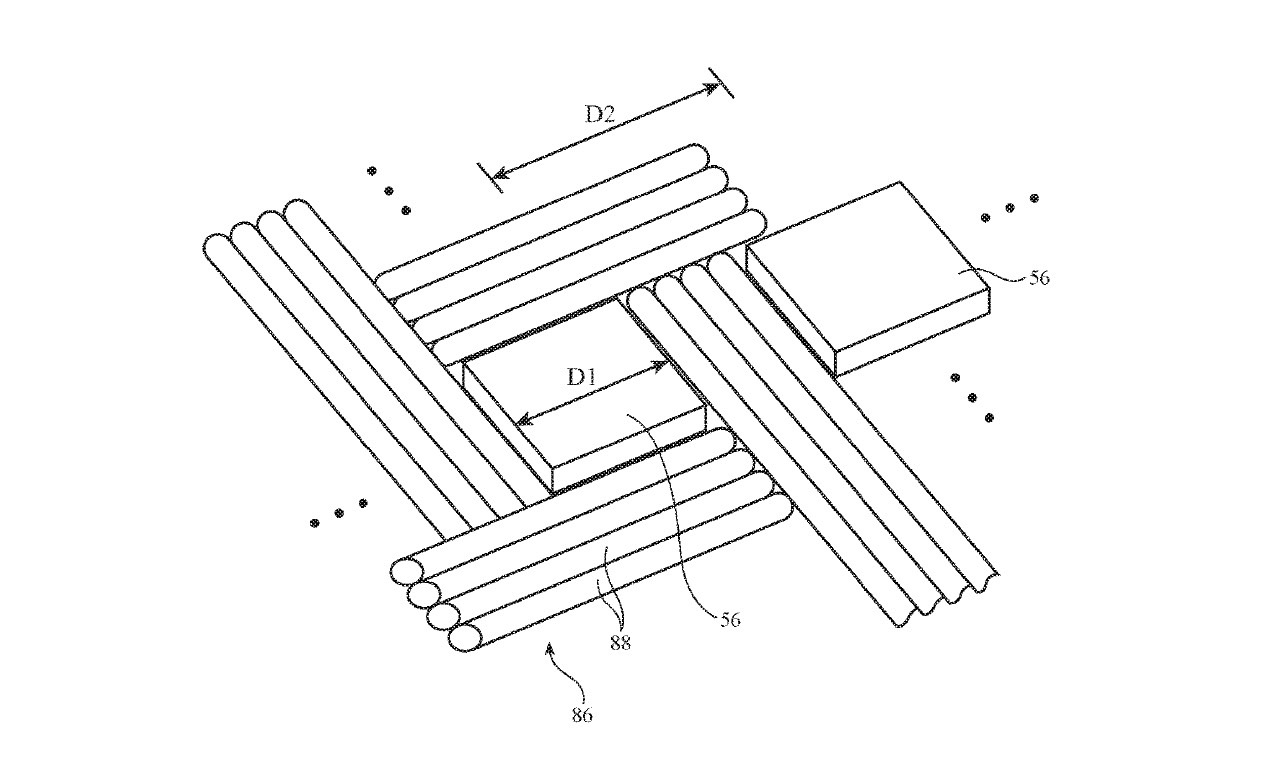Apple’s HomePod: It has great sound, lets you talk to Siri from across the room, and if you’re an Apple Music subscriber, it might just be your best friend. It’s also lagging so far behind the rest of the smart speaker market, that it may end up on the trash heap if Apple can’t turn its sales numbers around. But what if Apple imbued a future version of the HomePod with features like 3D-gesture recognition, FaceID, and mood-sensing emoji? Might that turn HomePod’s frown upside down?
A recently discovered Apple patent application for an “electronic device with sensors and display devices,” suggests that Apple is certainly about to give it a shot. This patent doesn’t name the HomePod per se, but one look at the accompanying drawings and it’s hard to believe the cylindrical device in which a “speaker may be mounted” could be anything else.
The wide-ranging document describes various features of this theoretical device including:
- Two areas under the surface of the exterior fabric that are equipped with displays capable of showing text and “sufficient resolution to show images.” These displays could be powered by OLED panels, with up to 1 million pixels. The patent even makes it clear that the fabric outer layer would double as a touch-sensitive layer.
- These same displays would be capable of reading ambient light sources — anything from existing room lighting to the content being displayed on a nearby TV — and responding in kind, with matching colors and brightness.
- Cameras located on the sides of the device could identify different people and activities in the room and offer separate reactions for each, essentially making it a double-sided display.
- In addition to displaying text messages on the top portion of the display (e.g. as visual feedback to a voice command), the lower display could show an “animated assistant” — either lifelike or a cartoon avatar. We’re thinking that Siri might end up with Animoji abilities borrowed from the iPhone.
- Proximity detection — it would know how close you are through its cameras or other onboard sensors, or even by picking up on Bluetooth signals from an Apple Watch.
- Voice analysis: Algorithms would pick up on signs of stress, or sadness when you speak a voice command, the device would respond with colors or emoji-based avatars intended to empathetically reflect your mood, or show you opposite emotion avatars as a way of counteracting your state of mind.
- A sensor located on the top surface that can pick up hand gestures.
In short, it sounds as though Apple isn’t interested in following Amazon, Google, and even Facebook into a multi-device universe where smart speakers, smart displays, and other artificial intelligence-based gadgets all compete for your attention. The next HomePod could be a super-device, combining all of these features and more into a single product. If this happens, it could change the game for smart homes. On the other hand, if it ends up being even more expensive than the current HomePod, Apple could simply have an even bigger sales problem on its hands.







